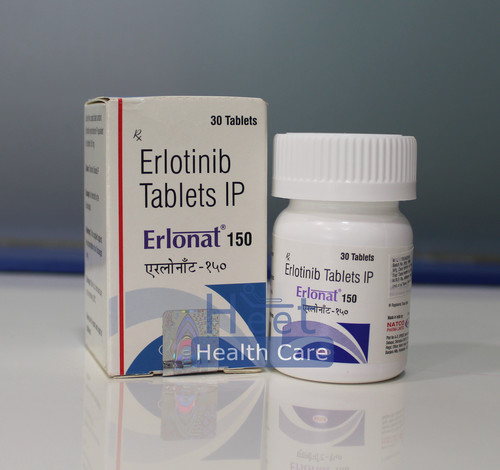Xtandi Capsules
Xtandi Capsules Specification
- Dosage Form
- Capsule
- Origin
- India
- Enzyme Types
- Other
- Storage Instructions
- Dry & Cool Place
- Shelf Life
- 1 Years
Xtandi Capsules Trade Information
- Minimum Order Quantity
- 1 Box
- Supply Ability
- 1000 Boxes Per Month
- Delivery Time
- 7 Days
- Main Export Market(s)
- Australia, South America, Middle East, Africa, Western Europe, Central America, Asia, Eastern Europe, North America
- Main Domestic Market
- All India
About Xtandi Capsules
Enzalutamide a drug used to treat metastatic castrationresistant prostate cancer mCRPC in adult men is the active component of Xtandi capsules An androgen receptor inhibitor like enzalutamide acts by preventing androgens male hormones from promoting the growth of cancer Patients who have already had hormone therapy androgen deprivation therapy yet have demonstrated disease progression are often administered Xtandi It enhances patient outcomes and slows the spread of prostate cancer For the management of probable side effects and to maximise therapeutic benefits regular medical monitoring is crucial during therapy Since Xtandi is an oral medication patients can easily administer it at home
Features and Advantages of Xtandi enzalutamide Capsules
Features
1 Enzalutamide an androgen receptor inhibitor is the active substance found in Xtandi capsules
2 Treatment for Metastatic CastrationResistant Prostate Cancer mCRPC Adult males with metastatic castrationresistant prostate cancer are prescribed Xtandi
3 Androgen Receptor Inhibition Enzalutamide prevents androgens or male hormones from promoting the development of prostate cancer
4 Hormone Therapy Resistance Patients who have already had hormone therapy androgen deprivation therapy yet have demonstrated disease progression are prescribed Xtandi
5 Oral Administration Patients can conveniently give Xtandi at home because it is administered orally in capsule form
6 Precision Therapy Xtandi provides precision therapy that targets particular biological pathways that contribute to the development of prostate cancer
Benefits
1 Effective management of metastatic castrationresistant prostate cancer mCRPC Xtandi is a key component of the therapy for this illness resulting in better patient outcomes and a longer duration of disease control
2 Increased ProgressionFree Survival In patients with mCRPC Xtandi therapy has been linked to an enhanced progressionfree survival rate
3 Slowed Cancer Progression Xtandi reduces the development and proliferation of prostate cancer cells by obstructing androgen receptor signalling
4 Chemotherapy Delay Xtandi may occasionally aid to postpone the requirement for chemotherapy in the management of mCRPC
5 Compared to placebo Xtandi has been proven to improve overall survival in patients with mCRPC
6 Personalised Treatment Xtandi enables a personalised treatment strategy based on the unique characteristics of the patient and the cancer
7 Outpatient Care Xtandi pills can frequently be taken outside of the hospital minimising the requirement for protracted hospital stays
8 Xtandi is generally well tolerated and has tolerable side effects
9 Supportive Care To manage side effects and enhance quality of life patients receiving Xtandi therapy are given supportive care
10 Research is still being done and new combinations and uses of enzalutamide in the treatment of prostate cancer are being explored giving patients with mCRPC more therapeutic options
Before beginning Xtandi Enzalutamide capsule medication patients must consider potential side effects and advantages with their healthcare physician To manage potential side effects and achieve the greatest results regular medical monitoring is essential The use of Xtandi necessitates competence and treatment choices should be made jointly by patients and their oncologists while taking into account unique circumstances and treatment objectives To manage side effects and maximise therapy efficacy patients should be regularly watched and given supportive care


Price:
- 50
- 100
- 200
- 250
- 500
- 1000+
More Products in Anti Cancer Medicine Category
Nublexa 40 mg Tablet
Price 35000 INR / Box
Minimum Order Quantity : 1 Box
Dosage Form : As Per Suggestion
Shelf Life : 2 Years
Origin : India
Feature : Other
Anti Cancer Medicine
Price 30000 INR / Unit
Minimum Order Quantity : 1 Box
Dosage Form : As Per Suggestion
Shelf Life : 2 Years
Origin : India
Feature : Other
Erlonat Erlotinib 150 mg Tablets
Price 8000 INR / Box
Minimum Order Quantity : 10 Boxes
Dosage Form : As Per Suggestion
Shelf Life : 2 Years
Origin : India
Feature : Other
Xovoltib Afatinib Dimaleate 40mg Tablets
Price 51000 INR / Box
Minimum Order Quantity : 10 Boxes
Dosage Form : As Per Suggestion
Shelf Life : 2 Years
Origin : India
Feature : Other
 |
HEET HEALTHCARE PVT. LTD.
All Rights Reserved.(Terms of Use) Developed and Managed by Infocom Network Private Limited. |

 Send Inquiry
Send Inquiry English
English Spanish
Spanish French
French German
German Italian
Italian Chinese (Simplified)
Chinese (Simplified) Japanese
Japanese Korean
Korean Arabic
Arabic Portuguese
Portuguese Send Inquiry
Send Inquiry




